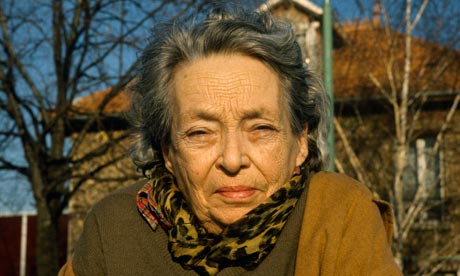In the media is a fortnightly round-up of features written by, about or containing female writers that have appeared during the previous fortnight and I think are insightful, interesting and/or thought provoking. Linking to them is not necessarily a sign that I agree with everything that’s said but it’s definitely an indication that they’ve made me think. I’m using the term ‘media’ to include social media, so links to blog posts as well as as traditional media are likely and the categories used are a guide, not definitives.

Photograph by Pari Dukovic
The Handmaid’s Tale is having a moment due to the television serial airing this coming week and the current political situation in America (and beyond).
- Madeleine Davies, ‘The Misogynist Future of Hulu’s The Handmaid’s Tale Feels Terrifyingly Within Reach‘ on Jezebel
- Rebecca Mead, ‘Margaret Atwood, the Prophet of Dystopia‘ in The New Yorker
- Rebecca Mead, ‘Margaret Atwood’s Grimly Relevant Additions to “The Handmaid’s Tale” Audiobook‘ in The New Yorker
- Katrina Onstad, ‘The Handmaid’s Tale: A Newly Resonant Dystopia Comes to TV‘ in The New York Times
- Willa Paskin reviews the show on Slate
- Anne Helen Peterson, ‘The Radical Feminist Aesthetic Of “The Handmaid’s Tale”‘ on Buzzfeed
- Emily Temple, ‘The Handmaid’s Tale Adapts More than the Novel: Here Is America‘ on Literary Hub

As one series begins, another ended this week:
- Emma Gannon, ‘It’s time to move on from ‘Girls’…but I’ll always love Lena‘ in Glamour
- Sophie Gilbert, ‘What Was Missing From the Girls Finale‘ on The Atlantic
- Erica Jong, ‘Why Do Female Characters Have to Be “Likeable”‘ on the BBC
- Anna Leszkiewicz, ‘The final episode of Girls revealed Hannah Horvath’s two most important relationships‘ in the New Statesman
- Halima Marcus, ‘The Very Best Episodes of Girls Are Perfect Short Stories‘ on Electric Literature
- Jia Tolentino, ‘On Finally Watching “Girls”, A Different and Better Show than I’d Been Led to Imagine‘ in The New Yorker
- Elizabeth Wurtzel, ‘Of course ‘Girls’ spoke to my life. Its brilliance is that it could speak to everyone’s‘ in The Washington Post
And in women win prizes, ‘Heather Rose wins the Stella Prize for a novel that wouldn’t ‘let her go’‘ as reported by The Sydney Morning Herald.

The best of the rest:
On or about books/writers/language:
- Negar Azimi, ‘The Extravagant Jane Bowles: Always on the Edge of Something‘ in The New York Times
- Megan Mayhew Bergman, ‘The Feminine Heroic‘ on The Paris Review
- Joanna Cannon, ‘Breaking and Mending‘ on her blog
- Sarah Churchwell, ‘Sylvia Plath, a voice that can’t be silenced‘ in The Guardian
- Paula Cocozza, ‘21st-century fox: how nature’s favourite outsider seduced the suburbs‘ in The Guardian
- Deidre Coyle, ‘Men Recommend David Foster Wallace to Me‘ on Electric literature
- Meghan Daum, ‘The Quality of Life Report, 2017‘ on VQR
- Adyita Desi, ‘Woman with Power Is Woman Unchecked: Reading Narratives of Indian Women‘ on The Millions
- Lissa Evans, ‘How my novel about film-making was turned into a film‘ in The Guardian
- Merve Fejzula, ‘Zadie Smith and Multiculturalism after Brexit‘ on Black Perspectives
- Elizabeth Fremantle, ‘“Cringing” Historical Novelists: on Mantel at the Oxford Lit Fest‘ on The History Girls
- Sarah Gerard, ‘Mourning My Grandfather Through The Velveteen Rabbit‘ on Literary Hub
- Louise Glück, ‘On Realism and Fantasy‘ on Literary Hub
- Sophie Hopesmith, ‘Women Who Shock‘ on Dead Ink Books
- Terry Huang, ‘Gender Gap in Non-Professional Writer Submissions‘ on The Black List
- Danielle Jackson, ‘Life in North Memphis, and the Women Who Taught Me to Read‘ on Literary Hub
- Lucy Mangan, ‘This way to the ginger pop shop! The day I stepped into the pages of the Famous Five‘ in The Guardian
- Edie Meidav, ‘Discovering the Power of Storytelling in a Tattered Old Pulp Paperback‘ on Literary Hub
- Jennifer Mills, ‘The beauty regimen of a woman writer‘ on Overland
- Eilis O’Hanlon, ‘“She’s a thief who steals others’ hard-won words” – on the plagiarist who stole her novel‘ in The Irish Independent
- Sarah Paretsky, ‘From Joan of Arc to Little Women, A History of Heroes‘ on Literary Hub
- Pamela Paul, ‘Why You Should Read Books You Hate‘ in The New York Times
- Grace Payley, ‘Of Poetry and Women and the World‘ on FSG Work in Progress
- Ella Risbridger, ‘The letters Sylvia Plath wrote to her therapist are not ours to see‘ on The Pool
- Michèle Roberts, ‘The fallen woman: prostitution in literature‘ in The Guardian
- Lucy Scholes, ‘The Sisters Who Are Secretly Evil‘ on the BBC
- Doree Shafrir, ‘Not Everyone Is Meant To Have A Book Club‘ on Buzzfeed
- Kathryn Schultz, ‘Literature’s Arctic Obsession‘ in The New Yorker
- Rebecca Solnit, ‘Get That Life: How I Became a Writer, Historian, and Activist‘ in Cosmopolitan
- Sarah K. Stephens, ‘What Edith Wharton Taught Me about Marriage‘ on The Millions
- Beth Underdown, ‘Not From Around There: finding a place in historical fiction‘ on Northern Soul
- Saskia Vogel, ‘The Swedish Gangster’s Wife’s Bag‘ on The Paris Review
- Kyle Winkler, ‘Gertrude Stein: Unlikely Comp Teacher‘ on The Millions

Personal essays/memoir:
- Pearl Abraham, ‘Dreams of My Mother for One Last Passover‘ on Literary Hub
- Kerri Arsenault, ‘Growing Up in Maine’s “Cancer Valley”‘ on Literary Hub
- Jami Attenberg, ‘How Sicily Cemented an Unlikely Friendship‘ in The New York Times
- DeMisty D. Bellinger, ‘Tell Me Something Good‘ on The Rumpus
- Katie Booth, ‘The Bathrobe: On Quilting and Memory‘ on Catapult
- Rebecca Buckwalter-Poza, ‘The Law of Historical Memory’ on Catapult
- Elizabeth Crain, ‘On Girls, Trump, and Everyone I Ever Dated Before My Husband‘ on Literary Hub
- Elizabeth Ellen, ‘Messages for a Balloon: On Relocation and Families‘ on Catapult
- Jennifer Epperson, ‘When Good Hair Is Natural Hair‘ on Lenny
- Megan Galbraith, ‘Sin Will Find You Out‘ on Catapult
- Deepti Kapoor, ‘I Come from a Place on Your Bucket List‘ in Granta
- Maris Kreizman, ‘My “Sick” Body‘ on Medium
- Andrea Lauren, ‘Don’t Think Twice and the Power of Improvising Through the Unknown‘ on The Rumpus
- Vivien Lee, ‘The Loneliness Recipe‘ on Hazlitt
- Kimberly Melton, ‘Good Hair‘ on Oregon Humanities
- Grace Prassad, ‘Feathers from Home, and Other Family Heirlooms‘ on Catapult
- Elisabeth Sherman, ‘Am I Asian Enough?‘ on Catapult
- Tasha Kerry Smith, ‘Not Everything Legal is Clean‘ on Catapult
- Madeleine Thien, ‘The Land in Winter‘ on Granta
- Lidia Yuknavitch, ‘Civic Memory, Feminist Future‘ on Electric Literature
- Lidia Yuknavitch, ‘I Will Always Inhabit the Waters‘ on Literary Hub
- Iza Wojciechowska, ‘Family Trees‘ on Vela
- Laura Zera, ‘Waiting to Go Home: On Being a Traveler in Trinidad‘ on Catapult

Feminism:
- Laura Bates, ‘What I have learned from five years of Everyday Sexism‘ in The Guardian
- Sady Doyle, ‘Women Don’t Need to Apologize Less—Men Need to Learn How to Apologize‘ in Elle
- Petula Dvorak, ‘On Easter, Mary Magdalene will be maligned as a prostitute. Except she wasn’t‘ in The Washington Post
- Jean Hannah Edelstein, ‘It feels almost impossible to escape the desire to make my body smaller‘ on The Pool
- Ashley C. Ford, ‘Millennial Women Are Conflicted About Being Breadwinners‘ on Refinery29
- Hadley Freeman, ‘Successful, lairy, scary – what does a vulnerable woman look like?‘ in The Guardian
- Ann Friedman, ‘When Women Pursue Sex, Even Men Don’t Get It‘ on The Cut
- Maya Harris, ‘Equal Pay Day Isn’t a Holiday. It’s a Call to Fight.‘ on Lenny
- Maddie Holden, ‘Why the Sentiment Behind Cosmopolitan’s Appalling Diet Tweet Is Not Unusual‘ on HighSnobiety
- Rachel Holmes, ‘A new feminist statue is a great idea. Shame they picked the wrong feminist‘ in The Guardian
- Brionne Janae, ‘No One Looks for Black Girls‘ on Bitch Media
- Jennifer McShane, ‘Why We’re Done With The Idea Of “Likeable” Women‘ on Image
- Vonny Moyes, ‘Why sex for rent is not a deal like any other‘ in The National
- Leslie Nguyen-Okwu, ‘The Forgotten Language that Only Women Once Knew‘ on Ozy
- Emer O’Toole, ‘The Sisters of Charity presided over abuse. They must not run a maternity hospital‘ in The Guardian
- Kate Ristow, ‘Why Didn’t I Get Help for Postpartum Depression Sooner?‘ on The Cut
- Sophie Walker, ‘Brexit will be disastrous for women unless we fight the rollback of our rights‘ in The Guardian

Photograph by Adrienne Mathiowetz
Society and Politics:
- Eula Biss, ‘Murder Mystery‘ in The TLS
- Caren Chesler, ‘The Blood of the Crab‘ on Popular Mechanics
- Rhiannon Lucy Cosslett, ‘My generation has to choose between a child or a career. We can’t afford both‘ in The Guardian
- Caitlin Flanagan, ‘How Late-Night Comedy Fueled the Rise of Trump‘ on The Atlantic
- Elisa Gabbert, ‘Earth Is Not Vengeful—It’s Just Indifferent‘ on Pacific Standard
- Erika Hayasaki, ‘How a Single Gene Could Become a Volume Knob for Human Suffering‘ on Wired
- Gaby Hinsliff, ‘The viral image of Saffiyah Khan is an antidote to an era of escalating male rage‘ on The Pool
- Kate Imbach, ‘Fairytale Prisoner by Choice: The Photographic Eye of Melania Trump‘ on Medium
- Sarah Kendzior, ‘Trump craves praise. We praise him for bombings. What possibly could go wrong?‘ in The Globe and the Mail
- Sarah Lyall, ‘Will London Fall?‘ in The New York Times
- Eimear McBride, ‘in the West Bank: “All that is human in me recoils from this”‘ in The Irish Times
- Rachel Monroe, ‘#Vanlife, the Bohemian Social-Media Movement‘ in The New Yorker
- Suzanne Moore, ‘In dark times, this image has a glorious message – resistance is not futile‘ in The Guardian
- Sarah Nicole Prickett, ‘Free the Roses‘ on Hazlitt
- Jana G. Pruden, ‘A Radical Grief‘ in The Globe and the Mail
- Sarah Scholes, ‘Brain-Altering Science and the Search for a New Normal‘ on Pacific Standard
- Elif Shafak, ‘Turkey could be about to leap from division to despotism‘ in The Guardian
- Sonia Weiser, ‘Do Women Actually Wear Men’s Dress Shirts After Sex?‘ on Racked

Film, Television, Music, Art, Fashion and Sport:
- Sarah Barker, ‘The Brutality of the Barkley Marathons‘ on Deadspin
- Angelica Jade Bastíen, ‘What the Debate Around Black American and British Actors Gets Wrong‘ on Vulture
- Francine Prose, ‘“Sex and the City” in Hell‘ in The New York Review of Books
- Fariha Róisín, ‘Kids Like Us‘ on Hazlitt
- Donna Seaman, ‘Surrealist Gertrude Abercrombie, Queen of the Bohemian Artists‘ on Literary Hub

The interviews/profiles:
- Sara Ahmed on Literary Hub
- Diana Athill on Lenny Letter
- Jennifer Finney Boylan on Vice
- Durga Chew-Bose in The Guardian and on Literary Hub
- Patty Yumi Cottrell in The Paris Review and on Electric Literature
- Jessa Crispin in The Observer and on Vox
- Rachel Dolezal (interviewed by Ijeoma Oluo) on The Stranger
- Sarah Gerard on Electric Literature
- Zoe Gilbert on The Word Factory
- Camilla Grudova on Minor Literature[s]
- Paula Hawkins on Northern Soul
- L.S. Hilton on The Pool
- Donna Leon in The Guardian
- Deborah Levy in The TLS
- Alia Malek in Gurenica
- Helen McClory on The Skinny
- Lisa McInerney in The Guardian and on TSS Publishing
- Dorthe Nors on The Man Booker Prize and Words Without Borders
- Hanna Nowinski on Teen Vogue
- Sarah Perry in The Radio Times
- Claudia Rankine in The Paris Review
- Emma Ramadan on Conversational Reading
- Samantha Schweblin on Words Without Borders
- Shanthi Sekaran on The Rumpus
- Olivia Sudjic on Flavorwire
- Cheryl Lu-Lien Tan on The Rumpus
- Angie Thomas on The Rumpus
- Mónica de la Torre on Literary Hub
- Laura Waddell on Nothing in the Rule Book
- Joanna Walsh on Review 31
- Lidia Yuknavitch on Electric Literature

The regular columnists:
- Ijeoma Oluo on The Establishment
- Lucy Mangan in Stylist
- Roxane Gay in The Guardian US
- Caitlin Moran in The Times
- Ella Risbridger in The Pool
- Sali Hughes in The Pool
- Bim Adewunmi in The Guardian
- Sophie Heawood in The Guardian
- Eva Wiseman in The Observer
- Tracey Thorn in The New Statesman
- Chimene Suleyman and Maya Goodfellow on Media Diversified
- Josie Pickens on Ebony
- Lizzy Kremer on Publishing for Humans
- Juno Dawson in Glamour
- Louise O’Neill in the Irish Examiner
- Jendella Benson on Media Diversified
- Lola Okolosie in The Guardian
- Sarah Gerard, ‘Mouthful‘ on Hazlitt
- Books by Women We’d Love to See in English on Literary Hub




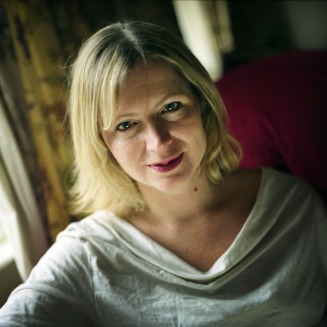
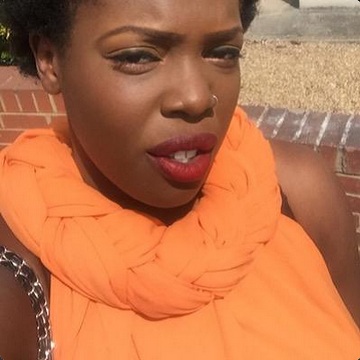





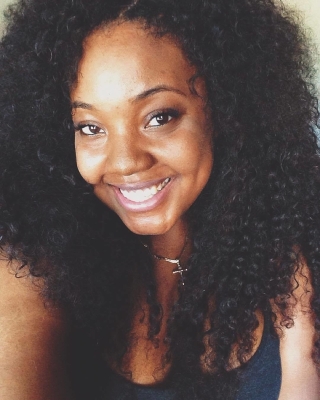








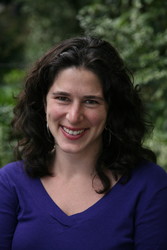

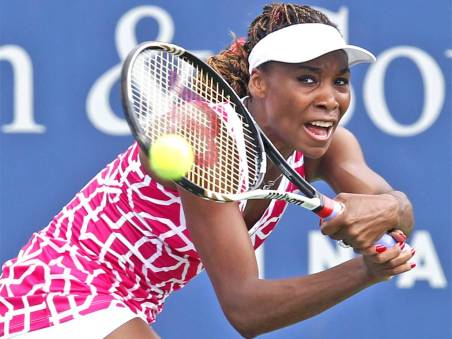





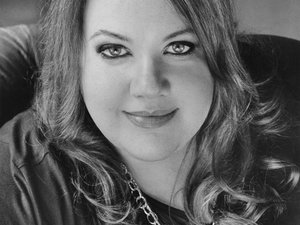



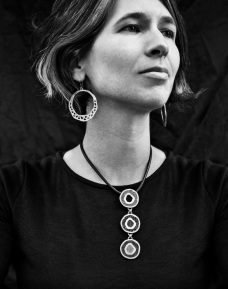






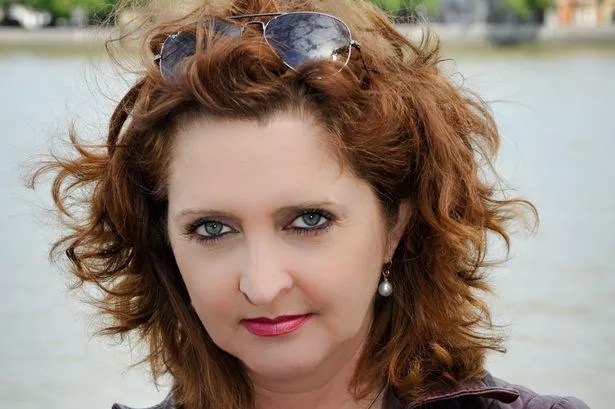


 Photo by Wayne Thomas
Photo by Wayne Thomas